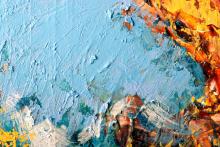Prayer

Squeezed among two dozen other evangelical supporters of the president, Southern Baptist Richard Land added his hand to the others reaching to pray for President Trump. The July 10 Oval Office prayer session, which has been panned and praised, is just one example of the access Trump and his key aides have given to conservative Christian leaders — from an hourslong May dinner in the Blue Room to an all-day meeting earlier this month in the Eisenhower Executive Office Building next door.
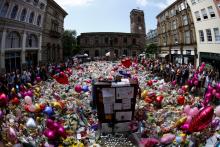
A week after a terrorist bomb killed more than 20 and left scores injured, the people of Manchester will make their way through the streets of their grief-stricken city in one of its most traditional and religious events: the Whit Walk.
This will be a moment where the old Manchester meets the new, when the Christian tradition of the walk, commemorating the Feast of Whitsun — or Holy Trinity — meets the secular rituals that have come to define public mourning since this increasingly irreligious nation said goodbye to Princess Diana, who died exactly 20 years ago.

Every day now, politicians and the pundits debate what obstruction of justice technically means, and ask how resilient our political institutions are to a presidency that almost daily goes beyond “unprecedented.” But while we all wait for the next crisis to hit and anticipate the new media cycle about it, we dare not miss what people are faith are always supposed to be most concentrated on — the poor and the vulnerable who are facing unprecedented threats from funding and policy decisions that lie just ahead.

We do not believe the same thing. We are Abrahamic siblings, yes, and deeply connected in important ways, but our faiths, theology, practice, histories, views on God are different.
But love.

If the High Court ultimately rules that women can read Torah in the women’s section of the Western Wall, ultra-Orthodox lawmakers in the Israeli Parliament may try to pass legislation to criminalize the practice, not only at the traditional wall but also at Robinson’s Arch.
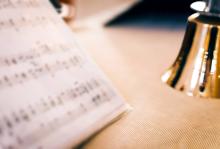
“A New Father, Awe-Struck” is a new hymn-prayer written days before Christmas 2016. It begins with a traditional image of a manger scene, and becomes a prayer that we may look deeper— at our loving God who chose to come into this world as someone who was poor, powerless, in danger, and a refugee.
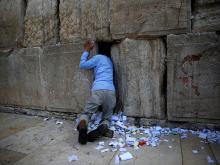
Hoping for divine intervention – or Jewish votes – Donald Trump wrote a short prayer to be inserted in between the stones of the Western Wall.
Trump’s team photographed and sent a copy of the handwritten prayer to Ynet News and Yedioth Ahronoth, Israeli sister publications. The original was handed to David Faiman, a Trump advisor, who was heading to Israel, the news outlets reported.

Thank God for the internet.
If you believe in God, that is. For a time, Mike McHargue did, and then he didn’t, and now he does again.
But it’s on the internet where McHargue — better known as “Science Mike” to listeners of “The Liturgists” and “ Ask Science Mike” podcasts — found community when he was questioning his Southern Baptist upbringing and then the atheism he had adopted. And it’s on the internet where he’s forged a community with others like him who can’t comfortably wear either label: Christian or atheist.
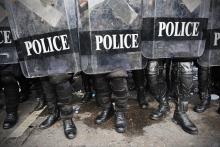
As I looked through my Facebook newsfeed I saw many of my African-American friends asking, “How long, oh Lord?” This question is not just one we asked after Alton Sterling and Philando Castile were added to our great cloud of witnesses as the latest victims of racial violence, but this is a question our parents, grandparents, and generations have asked as they faced oppression.
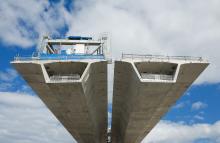
I am driving down Western Avenue in Chicago trying to remember a prayer by heart. I drive this way most days. It’s a speedy through-route to points of interest south of me. Suddenly, the overpass that took the brunt of that traffic is gone, and we are left with one, wide road. The middle lanes are closed to rebuild. We drive on the outer roads, either side of the construction zone, banked up against the chain link fences that keep us out, and the workers in, I suppose.

When I am alone, and everything is quiet, I feel the weight of the holy pressing in like a warm comforter tucked up tight around me. When I am alone in this quiet, God feels so close, so tangible — so present.

I love Saint Mark. I truly do. But if the apostles were in a line-up and we threw Mark in there with them, I wouldn’t be able to tell him from second Judas. Frankly I wouldn’t be able to identify half of them. At this point, some folks have likely paused to Google, “there were two Judases!?"
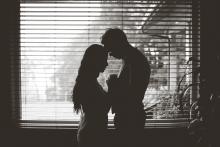
The vast majority of Americans have prayed for the healing of others and more than 1 in 4 have practiced the laying on of hands, a Baylor University expert reports. “Outside of belief in God, there may be no more ubiquitous religious expression in the U.S. than use of healing prayer,” said Jeff Levin of the university’s Institute for Studies of Religion in an announcement of his findings.
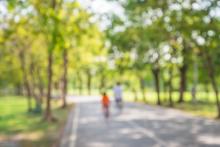
WHEN IT IS prayer time, Rami Nashashibi prays. His Muslim faith is the core of his life and work, inspiring the two decades of advocacy he has done on behalf of the poor and marginalized on the South Side of Chicago.
But when prayer time arrived on an unseasonably warm day in December, Nashashibi paused. It was just days after the terrible terrorist attack in San Bernardino, where extremists calling themselves Muslims murdered 14 people and injured many more. Nashashibi was in his neighborhood park with his three kids, and he found himself suddenly struck by fear at the thought of praying in public and therefore being openly identified as Muslim at a time when so many equated that term with terrorist.
That neighborhood park happened to be Marquette Park. Fifty years earlier another man of faith stood not far from where Nashashibi was standing, and he too felt fear. That man was Martin Luther King Jr. He had come to Chicago in 1966 to raise awareness about discriminatory housing practices on the South Side. His march through Marquette Park was met with racist sneers and vigilante violence. A brick thrown his way actually hit him in the head and brought him to his knees.

An Italian bishop has clashed with a pair of priests who want to invite Muslims to pray inside their churches in a bid to promote tolerance in a diocese in Tuscany.
“The deserved, necessary and respectful welcome of people who practice other faiths and religions does not mean offering them space for prayers inside churches designed for liturgy and the gathering of Christian communities,” Bishop Fausto Tardelli of Pistoia said in a statement reported on March 19.

I’m a hospice volunteer. I visit several patients each week, just sit down and chat about stuff. I do it primarily for me – it’s who I am, how I’m wired, and I suspect that I get a lot more out of it than the people whom I visit. They share some of the most poignant and difficult and joyful moments with me. And their final days.

Rape. Domestic Violence. Acid Burnings. Female Infanticide. Human Trafficking. Emotional Abuse. Sexual Harassment. Genital Mutilation. These are just a few forms of sexual and gender-based violence (SGBV) that women and girls endure on a daily basis. But these assaults on the human spirit and sacred worth of women and girls will not have the last word.

The city of Phoenix has decided to replace prayer at its public meetings with a moment of silence. The move comes after a representative from the Satanic Temple was approved to say a prayer, or invocation, before a council meeting scheduled for Feb. 17.
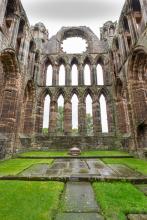
A few days ago I had the wonderful opportunity to spend a day with Richard Rohr. Our conversation from the moment he picked me up from the airport, was energizing and thought provoking. Rohr's demeanor is very calming and without the fear of shaming or blaming, it's pretty easy to talk to about anything. We discussed the institutional church, poverty, self-care, the contemplative life, and many other issues. But one topic came up that I didn't anticipate, the issue of white privilege.
